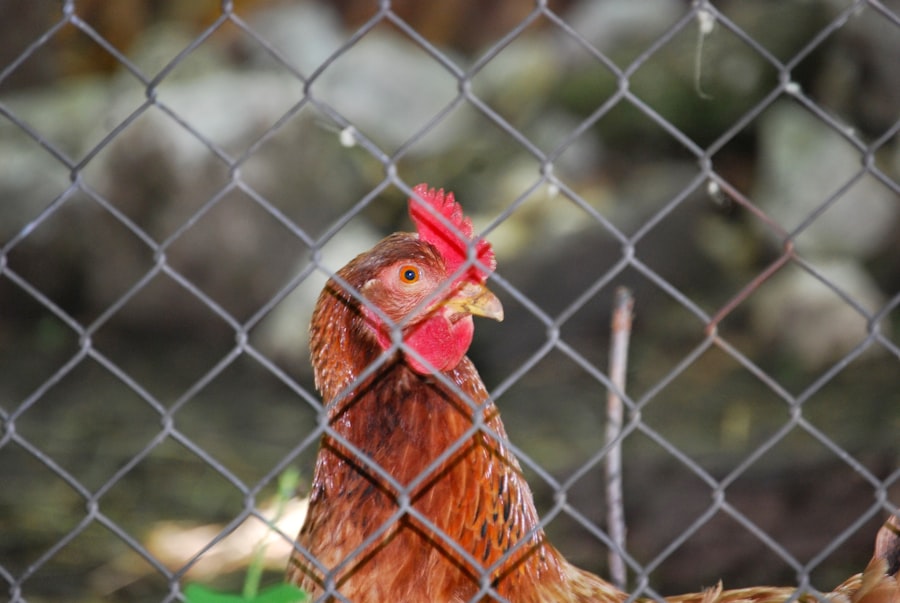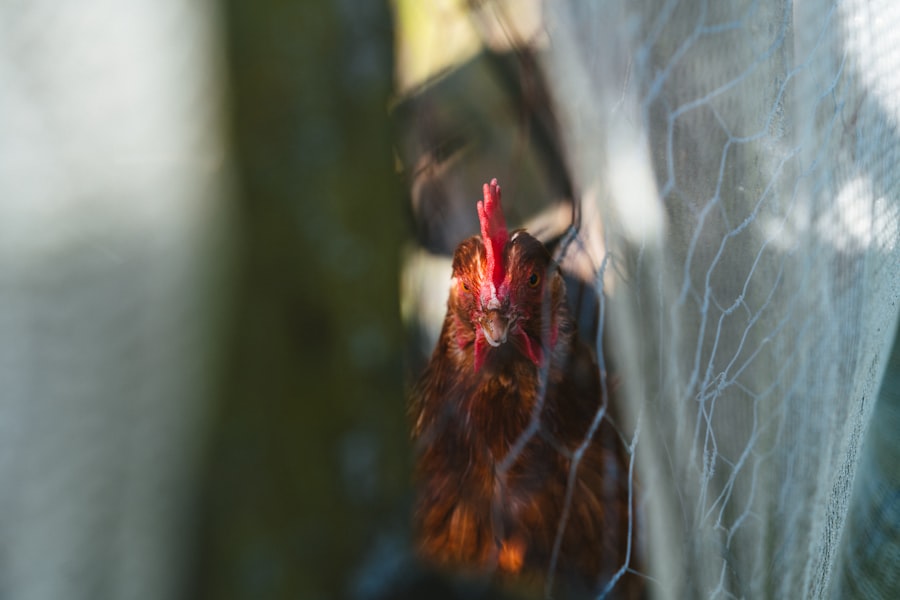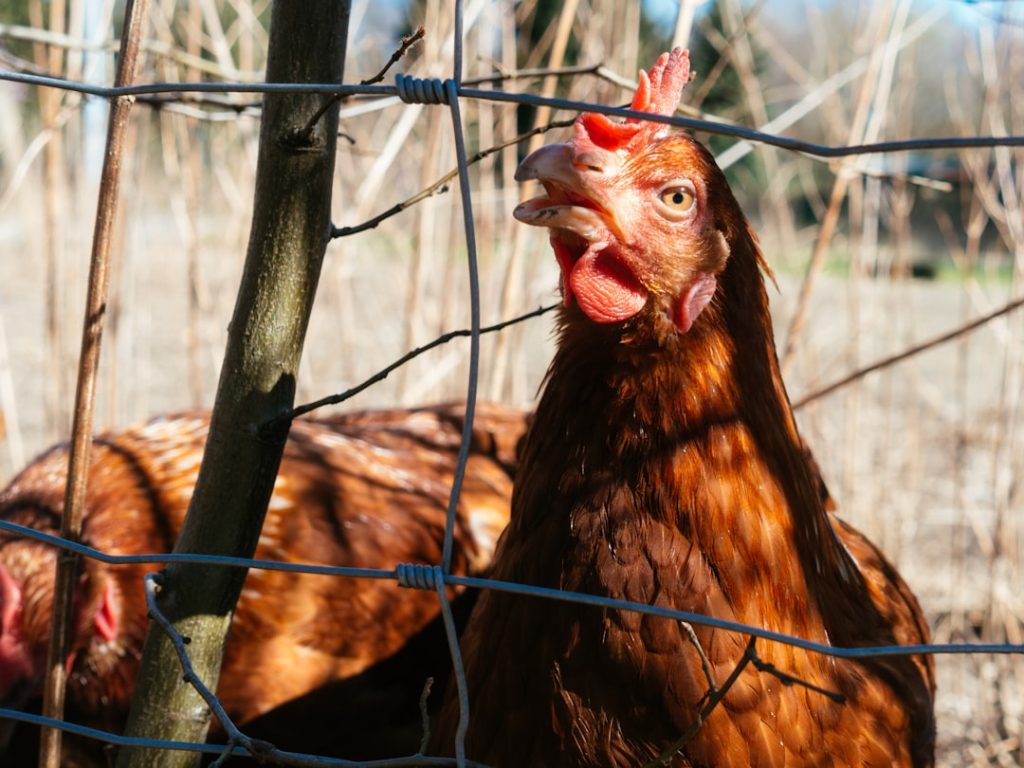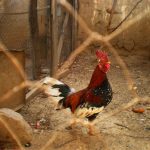Free range chickens are poultry that are allowed to roam freely outdoors, rather than being confined to a coop or small enclosure. This farming method enables chickens to engage in natural behaviors such as scratching, pecking, and dust bathing. These birds have access to a variety of vegetation, insects, and other natural food sources, which can contribute to their overall health and well-being.
The diverse diet of free range chickens often results in eggs with richer flavors and potentially higher nutritional content. However, free range chicken farming also presents challenges for farmers and homeowners. The birds may wander into gardens, flower beds, or other areas where they are not desired.
They are also more vulnerable to predators such as foxes, raccoons, and birds of prey. Effective management of free range chickens requires a thorough understanding of their behavior and needs, as well as the ability to address potential problems that may arise from their unrestricted movement.
Table of Contents
- 1 Identifying problem areas
- 2 Implementing physical barriers
- 3 Using natural deterrents
- 4 Training and behavior modification
- 5 Providing alternative spaces
- 6 Seeking professional help
- 7 FAQs
- 7.1 What are free range chickens?
- 7.2 Why do free range chickens need to be kept out of certain areas?
- 7.3 How can I keep free range chickens out of my garden?
- 7.4 What are some natural deterrents for keeping chickens out of certain areas?
- 7.5 Are there any commercial products available for keeping chickens out of certain areas?
Key Takeaways
- Free range chickens are allowed to roam freely and forage for food
- Problem areas for free range chickens include predators, weather, and access to restricted areas
- Physical barriers such as fences and netting can help protect free range chickens
- Natural deterrents like predator urine and noise makers can help keep predators away
- Training and behavior modification can help free range chickens stay within designated areas
- Providing alternative spaces like covered shelters and designated foraging areas can help protect free range chickens
- Seeking professional help from a veterinarian or animal behaviorist can provide additional support for protecting free range chickens
Identifying problem areas
Assessing Damage and Disturbance
One of the first steps in managing free range chickens is to identify the problem areas where they are causing issues. This may include gardens, flower beds, or other areas where they are causing damage or disturbance.
Understanding Chicken Behavior
It is important to assess the specific behaviors of the chickens that are causing problems, such as scratching up plants, eating vegetables, or leaving droppings in unwanted areas.
Additional Concerns: Noise and Safety
In addition to physical damage, free range chickens can also create noise disturbances and may pose a threat to other pets or wildlife.
Developing Targeted Strategies
By identifying the specific problem areas and behaviors, it becomes easier to develop targeted strategies for managing the chickens and minimizing their impact on the surrounding environment.
Implementing physical barriers

One effective way to manage free range chickens is to implement physical barriers that restrict their access to problem areas. This may include installing fencing around gardens or flower beds, using chicken wire or netting to protect vulnerable plants, or creating designated areas where the chickens are allowed to roam freely without causing damage. Physical barriers can help to create clear boundaries for the chickens and prevent them from accessing areas where they are not welcome.
It is important to ensure that any barriers are secure and well-maintained to prevent the chickens from finding ways to bypass them. Additionally, it is important to consider the needs of the chickens and provide them with alternative areas for foraging and exploring.
Using natural deterrents
In addition to physical barriers, natural deterrents can also be effective in managing free range chickens. This may include using repellent plants such as marigolds or lavender, which can help to deter chickens from certain areas. Other natural deterrents may include sprinkling citrus peels or coffee grounds around problem areas, as chickens tend to dislike the smell.
It is important to use natural deterrents carefully and consider their potential impact on other wildlife or pets in the area. Additionally, it may be necessary to rotate or vary the use of deterrents over time, as chickens may become accustomed to certain smells or plants. By using a combination of physical barriers and natural deterrents, it is possible to create an environment that is less attractive to free range chickens and encourages them to stay within designated areas.
Training and behavior modification
Training and behavior modification techniques can also be effective in managing free range chickens. This may include using positive reinforcement to encourage desirable behaviors, such as staying within designated areas or avoiding certain plants. For example, providing treats or rewards when the chickens stay within a certain area can help to reinforce this behavior over time.
On the other hand, it is also important to discourage undesirable behaviors through consistent redirection and correction. This may include using noise deterrents such as clapping or using a water sprayer to discourage chickens from accessing certain areas. It is important to be patient and consistent when using training and behavior modification techniques, as it may take time for the chickens to learn and adapt to new expectations.
Providing alternative spaces

Designated Foraging Areas
One crucial aspect of managing free range chickens is to provide them with alternative spaces for foraging and exploring. This can be achieved by creating designated foraging areas with access to natural food sources such as insects, seeds, and vegetation. By doing so, it becomes easier to redirect their behavior away from problem areas.
Meeting the Chickens’ Needs
When creating alternative spaces, it is essential to consider the specific needs and preferences of the chickens. This may include providing sheltered areas for dust bathing, perches for roosting, and access to fresh water and food sources.
Creating a Stimulating Environment
By providing a stimulating and enriching environment for the chickens, it becomes easier to manage their behavior and minimize their impact on surrounding areas. This, in turn, helps to maintain a healthy and thriving flock.
Seeking professional help
In some cases, managing free range chickens may require seeking professional help from a veterinarian, animal behaviorist, or poultry expert. These professionals can provide valuable insights and guidance on managing free range chickens in a way that is safe and effective for both the chickens and the surrounding environment. Professional help may be particularly important when dealing with aggressive or territorial behavior, health issues, or complex management challenges.
Additionally, professionals can provide advice on best practices for managing free range chickens in a way that promotes their welfare and overall well-being. In conclusion, managing free range chickens requires a combination of understanding their behavior, identifying problem areas, implementing physical barriers and natural deterrents, using training and behavior modification techniques, providing alternative spaces, and seeking professional help when needed. By taking a proactive and holistic approach to managing free range chickens, it is possible to create a harmonious coexistence between the chickens and their human caretakers.
If you’re struggling to keep free range chickens out of certain areas, you may want to consider building a farmhouse chicken coop. This article from Poultry Wizard provides helpful tips and guidance on creating a safe and secure coop for your chickens to roam in. Check out the article for more information on how to keep your chickens contained and protected.
FAQs
What are free range chickens?
Free range chickens are poultry that are allowed to roam freely and forage for food, as opposed to being confined to a coop or small enclosure.
Why do free range chickens need to be kept out of certain areas?
Free range chickens may need to be kept out of certain areas to protect gardens, flower beds, or other sensitive areas from being damaged by the chickens’ foraging and scratching behavior.
How can I keep free range chickens out of my garden?
There are several methods for keeping free range chickens out of gardens, including using physical barriers such as fences or netting, using natural deterrents such as plants with strong scents or tastes that chickens dislike, and providing alternative foraging areas for the chickens.
What are some natural deterrents for keeping chickens out of certain areas?
Plants with strong scents or tastes, such as lavender, mint, or marigolds, can act as natural deterrents for keeping chickens out of certain areas. Additionally, chickens may be deterred by the presence of predators, such as fake owls or hawks.
Are there any commercial products available for keeping chickens out of certain areas?
Yes, there are commercial products available, such as chicken wire, poultry netting, and electric fencing, that can be used to keep free range chickens out of certain areas. Additionally, there are natural repellent sprays and granules that can be used to deter chickens from specific areas.
Meet Walter, the feathered-friend fanatic of Florida! Nestled in the sunshine state, Walter struts through life with his feathered companions, clucking his way to happiness. With a coop that’s fancier than a five-star hotel, he’s the Don Juan of the chicken world. When he’s not teaching his hens to do the cha-cha, you’ll find him in a heated debate with his prized rooster, Sir Clucks-a-Lot. Walter’s poultry passion is no yolk; he’s the sunny-side-up guy you never knew you needed in your flock of friends!







